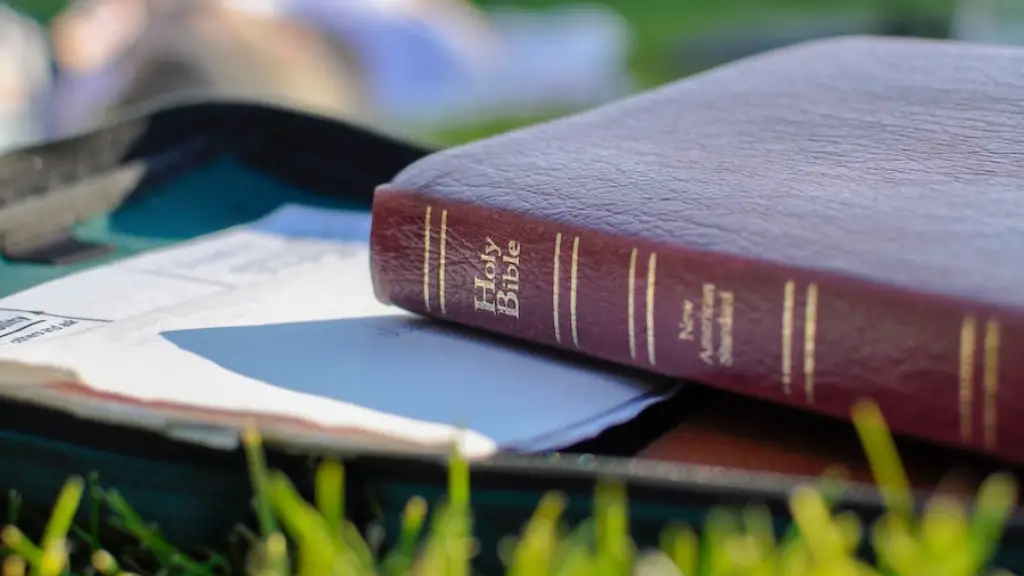Understanding Worship in the Bible
Worship is a very important and sacred act in many religions, especially Christianity. In the Bible, it is an expression of faith and love to the one true God. Worship can take the form of praising God with songs and prayers, or through devoted obedience and submission. These acts are meant to recognize God’s sovereignty and power, as well as His grace and mercy. But what does the Bible say specifically about worship?
In the Old Testament, there are many regulations and commands about how the people of Israel should worship God. In Leviticus, for example, there are rules about the sacrifices and offerings that must be made to the Lord. Worship in the Old Testament was particularly focused on following rules and regulations, and on offering sacrifices to show one’s devotion.
In the New Testament, the focus of worship changes. Jesus teaches that true worship is more than following a set of rules, but instead is a spiritual act of reverence, love and gratitude to God. Jesus himself is the ultimate example of worship, living a perfect life, giving up His life for ours and offering up his perfect obedience to His heavenly Father. The book of Revelation also mentions worship, where the citizens of heaven are described as singing praise to Him throughout eternity.
Types of Worship
There are many different types of worship in the Bible. One of the most important types of worship is individual worship, which is when a person devotes themselves to God in prayer, meditation and pious devotion. Another type of worship is corporate, or public, worship, which involves people gathering together to offer up praises and prayers to God as a group. Biblical worship can also take the form of a sacrifice, listenting to the Word of God, singing psalms and hymns, and offering up our lives to Him.
Why We Should Worship
Worship is not just about fulfilling religious obligations, but about expressing deep love and faith in God. When we offer up our praises and prayers, we can experience a deep sense of peace and joy. Worship can remind us of who God is, and of His promise to take care of us. Worship also draws us closer to God and strengthens our relationship with Him.
Results of Worship
When we worship God, there are many positive results that flow from it. For instance, when we come before God in prayer or praise Him with our words, we can experience an increased sense of self-awareness, humbleness and purpose. Worship also invites the presence of God into our lives, and can lead to healing, transformation and peace. Ultimately, worship is about offering up our lives to the Lord in a spirit of gratefulness and love.
Why Is Worship Essential?
The Bible emphasizes the importance of worship for a number of reasons. Firstly, it is an act of recognition and obedience to the one true God, Who has done so much for us. Secondly, it is a way to express our gratitude to the Lord for His love and grace in our lives. Thirdly, it gives us an opportunity to grow in our faith and partnership with God. Finally, worship serves as a reminder of the hope and love that God brings into our lives.
Intersection of Faith and Worship
The Bible makes it clear that faith and worship go hand in hand. True faith is rooted in trusting God and surrendering to His will. When we express our faith through worship, we demonstrate that we trust God and accept His guidance in our lives. In the same way, we can also strengthen our faith through worship. Through prayer, meditation and reading the Bible, we can become more aware of the Lord and His promises, drawing us closer to Him and to our faith.
Worship in Community
The Bible also encourages us to worship together in community. Gathering with other believers who share in our faith provides an opportunity to learn and grow together. We can encourage one another in our shared journey of faith, and take heart from hearing their stories and insights. Group worship can also be a powerful way to declare our faith to the world and to build a stronger bond with the Lord.
Experiential Aspects of Worship
In the Bible, there are many references to worshipping God through our everyday experiences. We can offer praise to the Lord in the way we love others and make choices in our daily lives. And as we walk with God and seek to draw closer to Him, every moment of our lives can become an act of worship. We can reach out to Him through prayer, reading the Bible, and just taking the time to acknowledge His ever-present love and grace in our lives.
Achieving Connection with God
The Bible encourages us to seek connection with God through worship. It is a way to show that we love and appreciate Him, and is an expression of our commitment to Him. As we give ourselves to God in worship, our hearts open to receive His grace, mercy and love. Our lives become a living offering back to the Lord and He can use us as vessels to show His love to the world.
The Purpose of Worship
At its core, worship is an act of surrendering our lives to the Lord and turning to Him for help. Through worship, we can find strength, courage and hope as we walk through life’s challenges. We can see God’s work in our lives and experience the fullness of His purpose for us. And in the end, we can experience a deeper sense of connection and fellowship with God that transcends all understanding.
The Joy of Worship
The Bible teaches us that true joy is found in worship. When we place our trust in the Lord, we can experience a joy that is deeper than anything the world can offer. We can be filled with gratitude for all that He has done for us and for His love and grace in our lives. Through worship, we can know the joy of living in God’s presence, feeling His nearness and sense of peace even in the midst of life’s troubles.
Desiring Closeness to God
At the heart of worship is the desire to draw closer to God. It is an invitation to come before Him and experience all that He has to offer. When we come before God in worship, it can be a moment to recognize Him as the source of all hope, love and joy in our lives. By worshipping God, we receive a glimpse into who He is and the hope and power He holds for us.



